FP224 – Mulligan Smith in The Master of the Wild Kingdom, Part 2 of 2
Welcome to Flash Pulp, episode two hundred and twenty four.
![]() Tonight we present, Mulligan Smith in The Master of the Wild Kingdom, Part 2 of 2.
Tonight we present, Mulligan Smith in The Master of the Wild Kingdom, Part 2 of 2.
(Part 1 – Part 2)
[audio:http://traffic.libsyn.com/skinner/FlashPulp224.mp3]Download MP3
(RSS / iTunes)
This week’s episodes are brought to you by Nutty Bites.
Flash Pulp is an experiment in broadcasting fresh pulp stories in the modern age – three to ten minutes of fiction brought to you Monday, Wednesday and Friday evenings.
Tonight, Mulligan Smith, private investigator, meets Mr. Charles Barger.
Mulligan Smith in The Master of the Wild Kingdom, Part 2 of 2
Written by J.R.D. Skinner & Opopanax
Art and Narration by Opopanax
and Audio produced by Jessica May
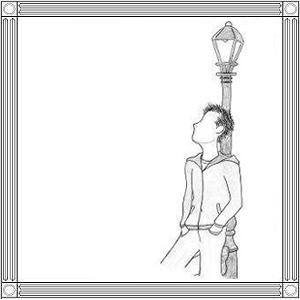 The bottomless nature of the elder Smith’s contacts had never ceased to amaze his son. The old man had assured him, at length, of the skill of the bush pilot, who’d introduced herself as Molly. It was not her abilities, however, that troubled the detective – it was his father’s insinuation about finding a nice girl and settling down.
The bottomless nature of the elder Smith’s contacts had never ceased to amaze his son. The old man had assured him, at length, of the skill of the bush pilot, who’d introduced herself as Molly. It was not her abilities, however, that troubled the detective – it was his father’s insinuation about finding a nice girl and settling down.
The aviator hardly seemed the type, however. Dual buns had always put Mulligan in mind of Princess Leia or raver-kids, but the woman wore them strikingly, and the only image she conjured was that of a feudal warrior princess prepared for battle.
The rough-weathered flight came after a seven hour drive, and Smith was grinding at his chewing gum as the wings dipped below the shadows of the pines that flanked their wet landing strip.
Once the plane had puttered to an engine-less coast, he exhaled.
“Handy bit of work,” he said.
Molly smiled and ushered him onto his pontoon.
As he finished inflating his dingy, he considered briefly that he might be taking on something worse than usual, but, as Mulligan pushed off, he wore a smirk: After the pilot had tossed his bags into the boat’s bottom, she’d retrieved a fishing rod to pass the wait.
Then, for a while, his only focus was rowing, and the glowing cigarette she’d hand-rolled as he’d prepared for departure.
The satellite maps he’d inspected before leaving had shown him a largely circular island, but the grainy resolution they provided for such a rural location made it impossible to identify the green-gray blobs that made up the isle’s interior.
For a time he could navigate only by compass and the light of his cellphone, which was as extensive a use as he was able to make of the electronic device, as there was no signal to be had.
An hour into his journey, the heavy clouds burst, and Smith began to curse endlessly between his clenched teeth.
His arms were aching, and he was beginning to think he might have gotten off track, when a ring of stadium-lights suddenly engaged, three-hundred yards away.
Digging for a second wind, Mulligan pumped hard, and was breathing raggedly when he finally dragged his rubber raft ashore.
As he’d done dozens of times earlier in the day, he considered why Olivia Barger might be working so hard to allow herself plausible deniability. Was the island a sex-slave harem? Some sort of drug operation?
He knew he was getting closer, but still didn’t have the data to decide.
The massive lights made it easy enough to stroll through the wooded strip which marched along the shore, but he soon encountered a high metal fence, beyond which was little but open grass. Smith guess he might be able to climb the barrier, but, in going over the top, he’d be easily spotted by anyone watching from beyond.
On the far side of the illuminated circle lurked a sprawling house. Though Mulligan could smell drifting smoke from a fire, the tall rows of windows stood dark and empty.
He was shielding his eyes against the overhead glare, and considering his options, when he noticed a large heap at the mid-point between himself and the cottage. At first he thought the mass inert, but soon he realized it was breathing.
He followed the bars to a better vantage point, which allowed him to make out just what the lump was: A rhinoceros, wheezing rhythmically as it drew in air.
The door at the opposite end of the field opened, and five men exited. Four were dressed in black suits, and each held a shotgun. Smith wondered briefly if such a thing would be required, as any one of them looked built to wrestle the rhino to the ground using only his bare hands.
Mulligan recognized the fifth as Mr. Charles Barger, despite the circle of green paint he’d spread over his face, and the red X he’d emblazoned across his chest.
The wing of bodyguards leveled their weapons in the general direction of the animal, but it was obvious to Smith, from the behemoth’s lack of reaction to the new arrivals, that there was likely enough sedative in the brute’s bloodstream to kill a small family.
Although the pictures of Barger had always portrayed a solid-head of silver hanging atop a pearly white smile, Mulligan realized then that he’d never seen the man in anything but full business attire.
Years of monomaniacal desk work had left his arms little more than straw spokes projecting from a sunken ribcage, giving the detective the impression of a large melon perched perilously on a straw.
Under the unyielding fluorescents, Smith could make out the goosebumps which covered Barger’s milky white body, and the shake in the rich-man’s arms as he extracted the machete from the sheath at his side.
As his protection maintained a respectful distance, Charles approached the gasping giant. His first swings against the slumberer brought only a trickle of blood, but he found better purchase at the animal’s throat.
The butchering was a messy one, filled with panting, cussing, and unpredictable gouts of gore being carried away on the back swing.
It was another thirty minutes before the beast finally fell silent.
Sweating, it’s supposed conqueror lay the end of his blade into the chaos of exposed fat and flesh, like Merlin placing the sword in the stone, but the implement immediately sagged to the left, falling free from its resting place.
Barger, who had turned back to his accompaniment, seemed to catch a look of question on the face of one of his bald-pated retinue.
“This was the last of the Western Black Rhinos,” screamed the adrenaline-flushed Charles, “I’ve just ended a species here – do you understand the power in that?”
“No boss,” said the muscle.
“Of course you don’t,” replied Barger. His face took on a lunatic’s grin, and Smith was left wondering if the same high-powered mixologist who’d pacified the sacrifice had also provided some chemical courage to the billionaire’s arm.
The silver-haired bobblehead cackled.
* * *
As he finally approached his ride home, Mulligan found that Molly had replaced her rod with a rifle.
“You took a long time,” she said.
“Nice to see you were worried,” he replied.
Their flight home was silent.
* * *
At noon, the following day, Smith was threading between mall pedestrians on his way to a bank kiosk. As he passed an electronic store’s television display, he noted that the twenty-four-hour news networks were still running an endless loop of Barger’s feeble opening assault on the rhino’s skull, followed by a close up of the businessman’s sneering painted-face.
The only satisfaction Mulligan found in it, however, was that, for once, his paycheck wouldn’t bounce.
Flash Pulp is presented by http://skinner.fm, and is released under the Canadian Creative Commons Attribution-Noncommercial 2.5 License.
Freesound.org credits:
Text and audio commentaries can be sent to skinner@skinner.fm, or the voicemail line at (206) 338-2792 – but be aware that it may appear in the FlashCast.
– and thanks to you, for reading. If you enjoyed the story, tell your friends.
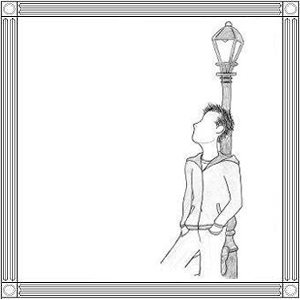 Mulligan’s troubles began when the first courier found him at the entrance to his preferred 7-Eleven. The helmeted youth had stopped him short on the curb before the PI had had time to take the opening sip of his slurpee.
Mulligan’s troubles began when the first courier found him at the entrance to his preferred 7-Eleven. The helmeted youth had stopped him short on the curb before the PI had had time to take the opening sip of his slurpee. By the age of fifteen, Mila Da Silva’s learning impediment had left her in a classroom surrounded by children half her age. The rural school she’d been attending had no budget to allocate to her special needs, and her parents had little money to invest in giving her a better education.
By the age of fifteen, Mila Da Silva’s learning impediment had left her in a classroom surrounded by children half her age. The rural school she’d been attending had no budget to allocate to her special needs, and her parents had little money to invest in giving her a better education.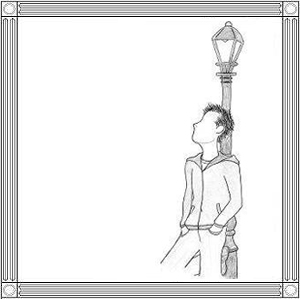 Smith had returned to his client’s house, on the west-side of Capital City, to find a black sedan parked on the paved lawn. Although Mulligan expected the carefully generic vehicle, he hadn’t anticipated a sudden thunderstorm, and slowed traffic had cost him the opportunity to intercept the stranger before they’d entered the home.
Smith had returned to his client’s house, on the west-side of Capital City, to find a black sedan parked on the paved lawn. Although Mulligan expected the carefully generic vehicle, he hadn’t anticipated a sudden thunderstorm, and slowed traffic had cost him the opportunity to intercept the stranger before they’d entered the home.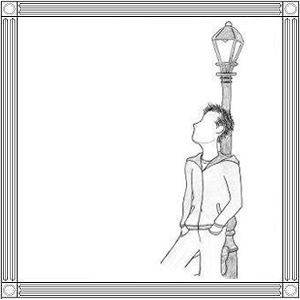 Mulligan had hated high school. Worse still, by having never left Capital City, he had found himself once again in the same halls he’d walked as a student.
Mulligan had hated high school. Worse still, by having never left Capital City, he had found himself once again in the same halls he’d walked as a student.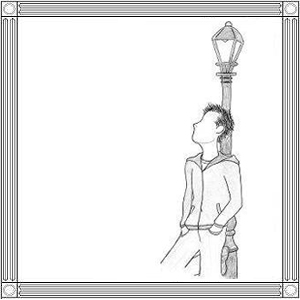 The house sat slightly to the right of the center of its block, and was flanked on either side by nearly identical replicas of its brick facade and wooden porch. The neighbourhood, on the west-side of Capital City, had been claimed by the somberly dressed office dwellers of the downtown core, and many of the small front yards had been smothered in pavement, to make space for extra parking.
The house sat slightly to the right of the center of its block, and was flanked on either side by nearly identical replicas of its brick facade and wooden porch. The neighbourhood, on the west-side of Capital City, had been claimed by the somberly dressed office dwellers of the downtown core, and many of the small front yards had been smothered in pavement, to make space for extra parking. Linwood’s claim that he was from some safe beyond nearly brought tears to my eyes, but there’s a voice that lurks at the rear of your skull after you’ve spent any time surviving the deadly overtures of a countryside full of lunatics – a sharp little bugger of a thing that’s eager to kick over your daydreams and pierce your hopes.
Linwood’s claim that he was from some safe beyond nearly brought tears to my eyes, but there’s a voice that lurks at the rear of your skull after you’ve spent any time surviving the deadly overtures of a countryside full of lunatics – a sharp little bugger of a thing that’s eager to kick over your daydreams and pierce your hopes. It’s an odd thing to introduce yourself to your neighbour when you are both miles from home, and you can’t be entirely sure they haven’t murdered someone. Worse still, it was soon obvious that Mr. Baldy, who presented himself as Virgil Gratey when I admitted I couldn’t recall his proper name, knew much more about my affairs than I knew of his.
It’s an odd thing to introduce yourself to your neighbour when you are both miles from home, and you can’t be entirely sure they haven’t murdered someone. Worse still, it was soon obvious that Mr. Baldy, who presented himself as Virgil Gratey when I admitted I couldn’t recall his proper name, knew much more about my affairs than I knew of his.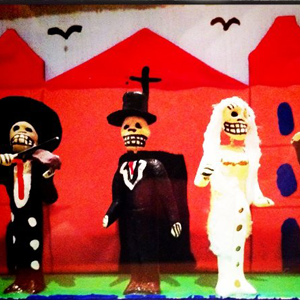 The McKean’s lived in a two story house at the furthest edge of Massawa Acres, a planned suburb still in the beginning throes of construction. Doug, the father, had bought early, with the thought that land prices would only rise as development continued. When he’d announced his plan, his family had done little more than nod their agreement before returning to their individual pursuits.
The McKean’s lived in a two story house at the furthest edge of Massawa Acres, a planned suburb still in the beginning throes of construction. Doug, the father, had bought early, with the thought that land prices would only rise as development continued. When he’d announced his plan, his family had done little more than nod their agreement before returning to their individual pursuits. Smith was tempted to pull his hands from his hoodie pockets, so that he might feel his way along the poorly lit corridor, but he refused to deepen his friend’s anxiety by appearing to be stumbling about the place. Instead, he depended on quick elbow work, and a slow shuffle, to navigate the plywood halls.
Smith was tempted to pull his hands from his hoodie pockets, so that he might feel his way along the poorly lit corridor, but he refused to deepen his friend’s anxiety by appearing to be stumbling about the place. Instead, he depended on quick elbow work, and a slow shuffle, to navigate the plywood halls.